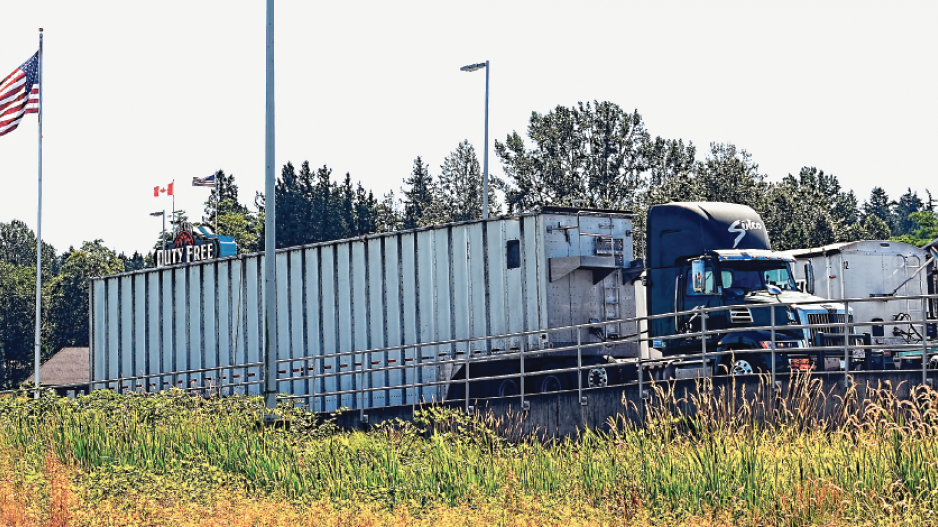COVID-19 has squeezed the profit margin of many B.C. businesses relying on import/export service for their supply chains, and importers will need to worry more than ever about whether they are paying unnecessary duties that are adding to costs.
That’s the observation of Graham Robins, CEO of A & A Customs Brokers and a veteran in handling import/export duties for small-to-medium-sized businesses.
Robins said a number of companies that come to A & A for help are paying unnecessary duties when importing – especially when from a market outside of North America.
“The new NAFTA [the Canada-United States-Mexico Agreement] gets all the airwaves because it just recently changed, but customers who are importing into Canada may be under the assumption that all tariffs and duty are mandatory, especially if you are importing from a third country,” Robins said. “There are a lot of countries that are not NAFTA that are duty-free. Don’t just accept that you have to pay duty unless you’ve really done your due diligence that you’ve got the right item classification, duty rate and relevant trade agreements.”
Robins noted that there’s a variety of reasons why companies handling imports may not be fully aware of the relevant duty classification and rules. In some cases, the situation may be “grandfathered” – a supplier paying an unnecessary duty may have been in the company’s supply chain for decades, while the company’s current management may have come onboard only in the last few years – not knowing the unnecessary costs are embedded in the chain.
In other cases, companies may simply lack the resources to check the eligibility of their imports for duty exemptions.
“The example that I always use that resonates with people is that it’s sort of like your cellphone or cable bill,” Robins said. “Do you really inspect it every month? Do you really look at the rate per minute down to the minute details? Do you cross-reference at length with a competitor to make sure you are getting the best rate?
“In my experience, if you ask 10 people, eight out of 10 probably don’t do that. And that’s the same of import/export; when you get thousands of items in per month, there are a lot of opportunities to investigate.”
Among the countries and markets that Canada currently has free-trade pacts, outside of CUSMA, are the European Union (Comprehensive Economic and Trade Agreement), Japan (Comprehensive and Progressive Agreement for Trans-Pacific Partnership or CPTPP), Vietnam (CPTPP), Australia (CPTPP), New Zealand (CPTPP), Peru, Panama, South Korea, Jordan, Israel, Honduras, Chile, Colombia and Costa Rica.
The need for B.C. importers to know exactly what they need to pay for at customs at the border is magnified, Robins said, by the current COVID situation. He noted that – with many companies squeezing every penny to survive, an importer that adds unnecessary costs to the supply chain would act almost like an anchor in weighing down the financial viability of the entire chain.
“What we are seeing a lot more about is that there is simply price pressure,” he said. “There are a lot of businesses that are hit hard, so they are looking everywhere for potential areas to cut cost.”
Even in cases where markets without free-trade deals are included, there may be unnecessary costs if a free-trade market is involved. Robins noted he recently helped a Canadian firm importing from China, then reselling the goods in the United States. In this instance, the company was paying double-duty – once when importing from China, another when importing into the United States.
“There’s a whole process to get that money back, and it’s called the duty drawback program,” Robins said. “And quite frankly, it’s a lot of work to do, so they just don’t do it and pass that cost onto the customers. Well, with the current price sensitivity, if you are paying double duty, there is actually a way to remove that cost from your supply chain. And that’s what people are looking for.”
The key takeaway? Importers need to be aware more than ever of where there duty costs are coming from – because no one else will do it for them.
“The mid-size-and-down importers are the ones being ignored,” he said. “If you are doing only a few million in trade, you usually have to advocate for yourself, and you are probably not going to have the resources to do it. So the big thing is, for this type of mid-level customer, they need to make sure they are fending for themselves.”




